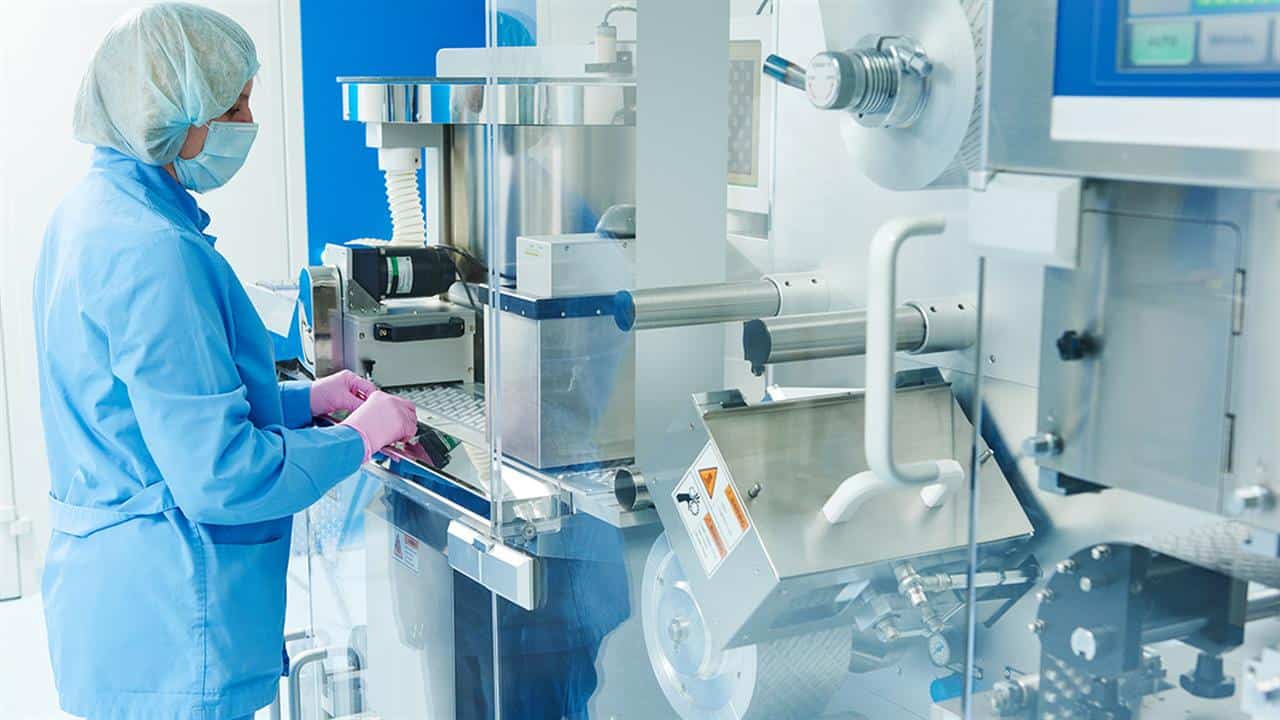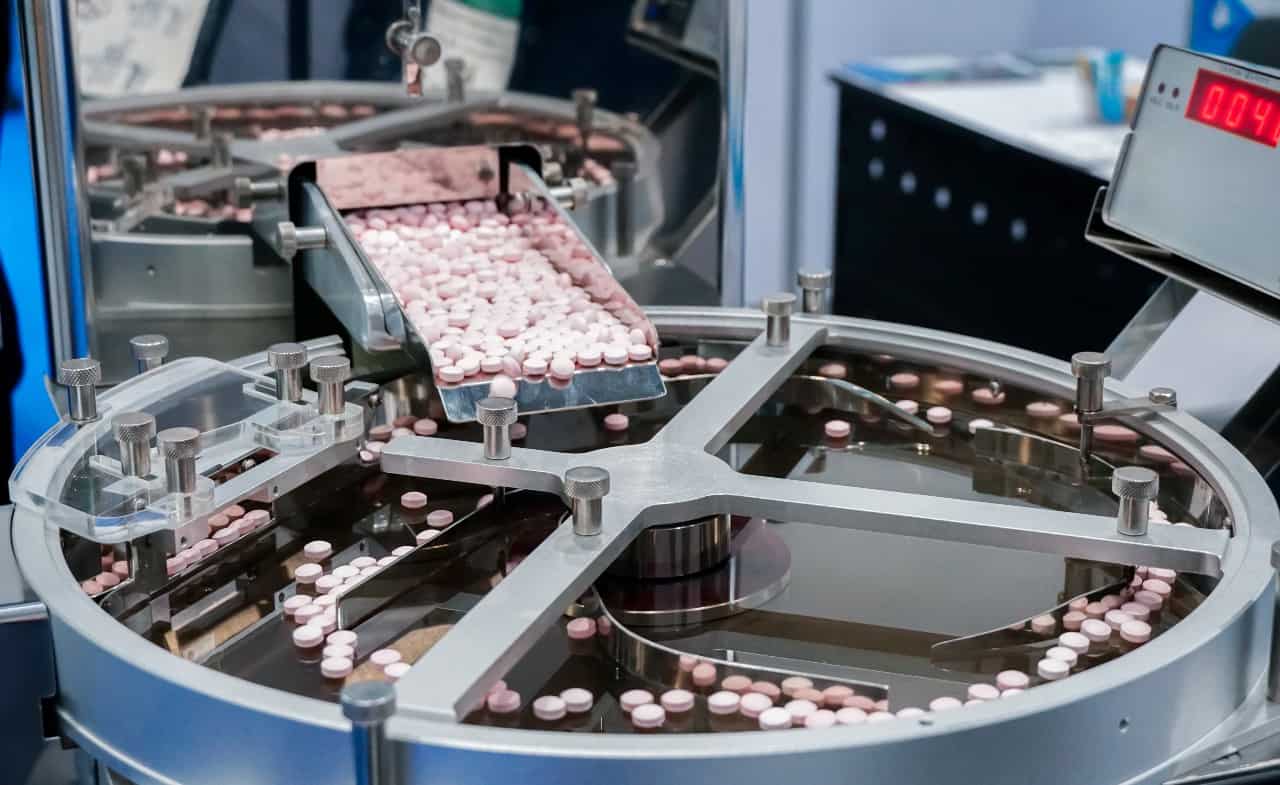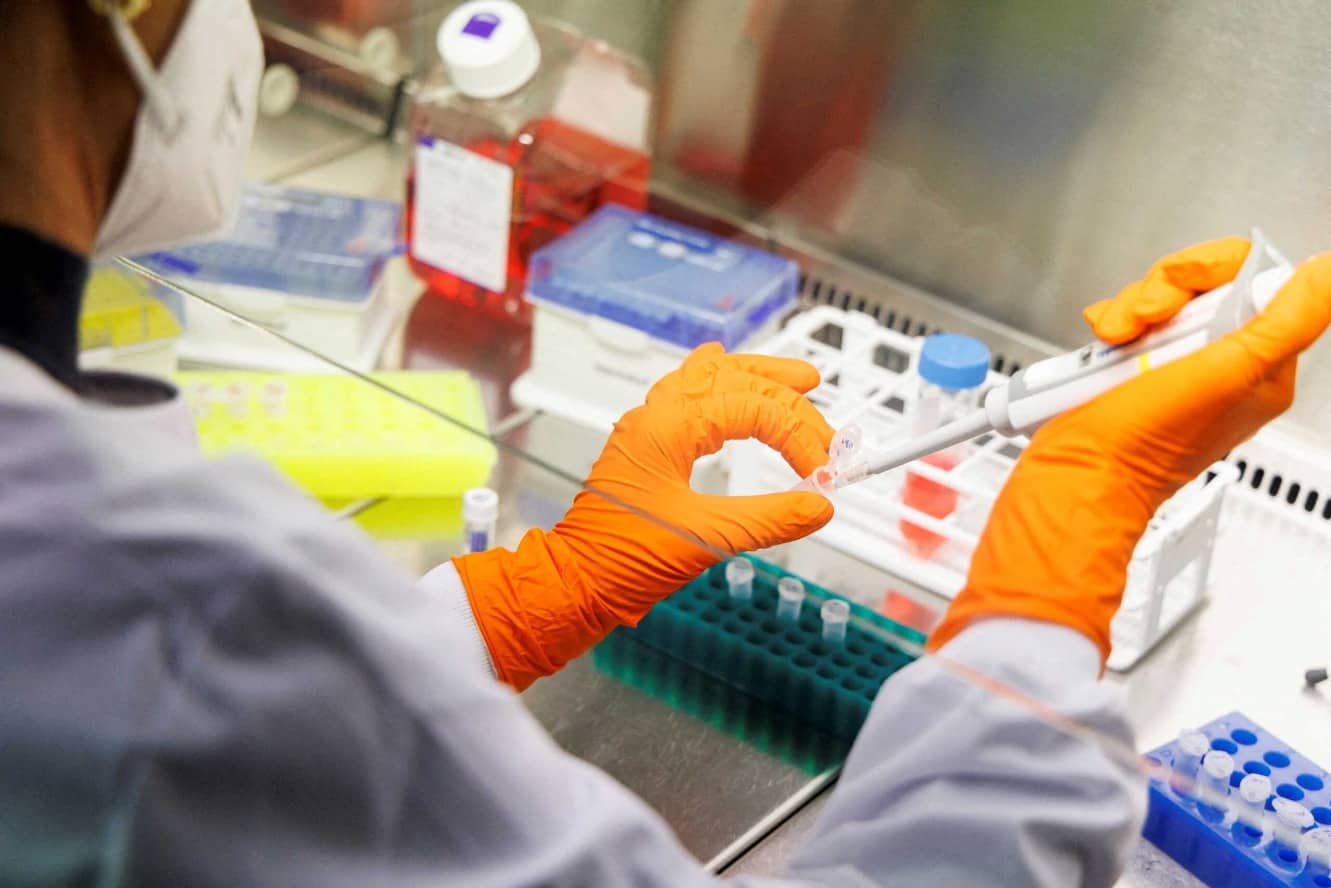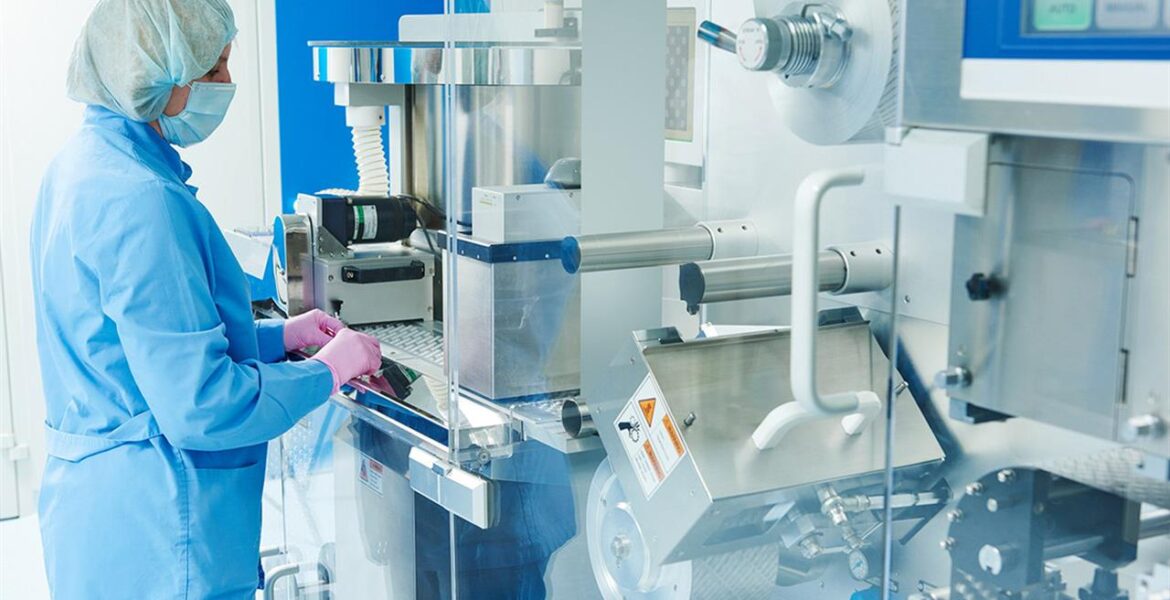The pharmaceutical sector in Greece has a strong financial footprint and is among the most dynamic sectors in the country in terms of growth. Greece’s pharmaceutical market is forecast to grow by 8.2%: from $7.5 billion in 2022, to $7.8 billion in 2023. By 2027, the market is predicted to reach $9.8 billion.
According to the report “The Pharmaceutical Market in Greece: Facts and Figures 2022” compiled by the Foundation for Economic and Industrial Research (IOBE) in cooperation with the Hellenic Association of Pharmaceutical Companies (SfEE), the pharmaceutical sector spends on Research & Development (R&D) 8% of the overall R&D expenditure in Greece. In addition, domestic medicinal products’ manufacturing has a 6.4% share in the manufacturing sector. According to recent IOBE estimates regarding the financial footprint of the pharmaceutical sector on Greek economy, its total contribution in GDP terms is estimated at €6.2 billion. (3.4% of GDP) in 2021. In employment terms, the overall contribution of the sector is estimated at 108 thousand jobs (2.8% of total employment).
Equally important is the role of the pharmaceutical sector in the overall external trade, with pharmaceutical product exports amounting to €2.6 billion in 2021, representing 4.7% of the total Greek commodities’ exports for 2022 to main export destinations, such as Germany, France and the UK. Right now, 10% of all generic medicine production in Europe comes from Greece.
On the occasion of the celebration of the 90th anniversary of the Pan-Hellenic Association of Pharmaceutical Industries (PEF), its vice-president Dimitris Demos surveyed the Greek pharmaceutical industry’s footprint in Greece and Europe as well as the sector’s dynamic for further growth in the years to come.

According to Mr. Demos, the Greek pharmaceutical industry is stronger than ever, but it is vital that it remains receptive to messages from the international market. One fist such message was the coronavirus pandemic, which led to a collapse of the supply chain and to significant shortages in essential medicines in Europe. That was due, according to Mr. Demos, to the existing European strategy that promoted the purchase generics from third countries; this had led to the closure of many European production units and the transfer of their operations to countries outside the EU.
Greece, having maintained its strong local pharmaceutical industry, not only did not face the shortage problem that the rest of Europe had, but what is more, supported the health systems of the rest of the European countries with the necessary pharmaceuticals.
The second strong signal for a change in the European strategy for pharmaceuticals came from the war in Ukraine, which, once again, left Europe facing lack of access not only to natural resources, such as natural gas and grain, but also to the raw materials that Russia supplied for industrial activities, such as ammonia for the production of fertilizers. According to Mr. Demos, 60% of the raw materials for drug production come from China, so one can only imagine the immensity of the problem for Europe if access to those materials became difficult, or even impossible.

Incentives for a European production of pharmaceuticals
Today, the E.U. is concerned about its production sufficiency in pharmaceuticals, and it is expected that incentives will be given for the production of raw materials for pharmaceuticals in Europe, as well as for the purchase pharmaceuticals of that are produced locally.
The plan for the return of the production of generics in Europe is now a fact, emphasized Mr. Demos. A few weeks ago, a law was passed in Germany, obliging, for certain categories of drugs, insurance funds to purchase 50% of their quantities from European producers. A first estimate shows at least a doubling of market size for European producers within the next 3-5 years .
In addition to the aforementioned important changes in the European strategy and the pan-European problem of interest rates and rising production costs, the Greek pharmaceutical industry has also two additional challenges to face: firstly, the loss of ten years of research into cutting-edge pharmaceutical technologies due to the economic crisis, and secondly, the ensuing brain drain.
The answer to whether the Greek pharmaceutical industry can rise to the global market challenges, is according to Mr. Demos, a resounding yes: “As a country we may represent only 2% of the European population, but today we own 10% of Europe’s generic production pharmaceutical units. In the last 3 years, through the very successful cooperation between the state and the pharmaceutical industry and the clawback liquidation law, the Greek pharmaceutical industry has been making investments, to such an extent had not been done in the last 30 years.”
Growth of pharmaceutical investment in Greece
By the end of 2025, the number of production units and research centers in Greece is expected to increase from 72 and 27 respectively, to 107 production units and 41 research centers. This expansion will result in a 35% growth in the sector’s footprint and the creation of 5,500 new jobs.
In financial terms, the pharmaceutical industry has already planned investments totaling 1.2 billion euros since 2022. With the new announcement cycle expected for the years 2024-2025, the total investment amount is projected to increase to 1.5 billion euros. Furthermore, the geographical expansion of the sector’s investments will generate employment opportunities across the country, spanning from Sappes, Halkidiki, Thessaloniki, and Ioannina, to Trikala and Lamia, as well as the Northern and Eastern sectors of Attica, and extending to Corinth, Patras, and Tripoli.
These investments will establish a new industrial sector in Greece, that of the production of raw materials for pharmaceuticals. Additionally, the 14 new research centers established by the pharmaceutical industry can serve as incubators for university researchers and mark the start of the industry’s biotechnology journey. The hope is that these substantial investments in biotechnology will create conditions conducive for brilliant Greek scientists to return to the country.
In addition, the Pan-Hellenic Association of Pharmaceutical Industries has started implementing training programs for young scientists, while at the same time planning vocational orientation programs for high school students, programs throughout the country and especially in the areas where new factories are being built.
Mr. Demos concludes that the Greek pharmaceutical industry is experiencing an unprecedented growth trajectory. It is operating at a startup pace, swiftly overcoming the challenges of the past decade’s crisis, while seizing opportunities presented by the global market. Its ambition is to emerge as the leading pharmaceutical industry in Europe.

The pharmaceutical industry: An overview
According to Enterprise Greece, with a highly skilled workforce and an established R&D and manufacturing capability, the Greek Life Sciences and Pharmaceuticals industry exhibits significant growth potential both in serving the internal market, as well as in expanding its reach beyond national borders.
In the Pharmaceuticals sector, the manufacturing of generics has the potential to spur growth and GVA, improving the efficiency of the Greek healthcare system and also fueling exports and growth for the Greek pharmaceuticals industry.
International pharmaceutical spending trends in recent years have highlighted the significance of lower-cost alternatives to off-patent drugs, particularly in the form of generics. This continuing trend towards generics has fuelled a global industry of generic drug manufacturers that have expanded through strategic acquisitions and have developed extensive marketing and distribution networks throughout the world.
The Greek pharmaceutical sector has traditionally been a strong contributor to the Greek economy, focusing mainly on local consumption. However, this shift towards generics can provide a very strong opportunity for the sector to leverage its know-how and capabilities, focusing first on the Greek market where cost pressures are forcing a major shift towards generic drug consumption, but also on European and other markets.
There are several Greek companies already competing successfully in the international pharmaceutical markets, with a strong shift towards R&D, innovation and marketing so that they can become competitive.
Why Invest in the pharmaceutical industry Greece
Regional market potential for generic pharmaceuticals – The CEE market is expected to almost double in size over the next few years, exhibiting more than twice the annual growth rate of the rest of Europe. Greek companies are very well-positioned to tap into these markets, thanks to lower transportation costs and strong sales and distribution networks
Regional Hub for Clinical Trials: Greece has established itself as a regional hub for clinical trials and most major international pharmaceutical companies conduct clinical trials in Greece. The new legislation for clinical trials creates the platform for attracting more R&D investment in Greece.
R&D and Development know-how – Life sciences research and pharmaceuticals manufacturing have been well-established in Greece and exhibit extensive know-how and world-class collaborations.
Skilled medical personnel – Greece has a significant quantity and quality of expert physicians, who are sought after in several countries and whose expertise is a strong competitive strength.
Medical tourism market potential – The development of new medical tourism products combining healthcare and holidays is expected to dramatically increase based on the combined competitive advantages of Greece in the two sectors of tourism and healthcare, especially for the Middle East markets which have direct access to Greece.
By Ioulia Livaditi, Greek News Agenda

